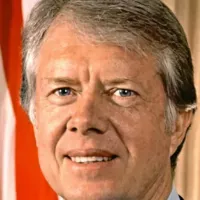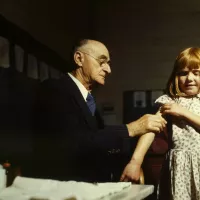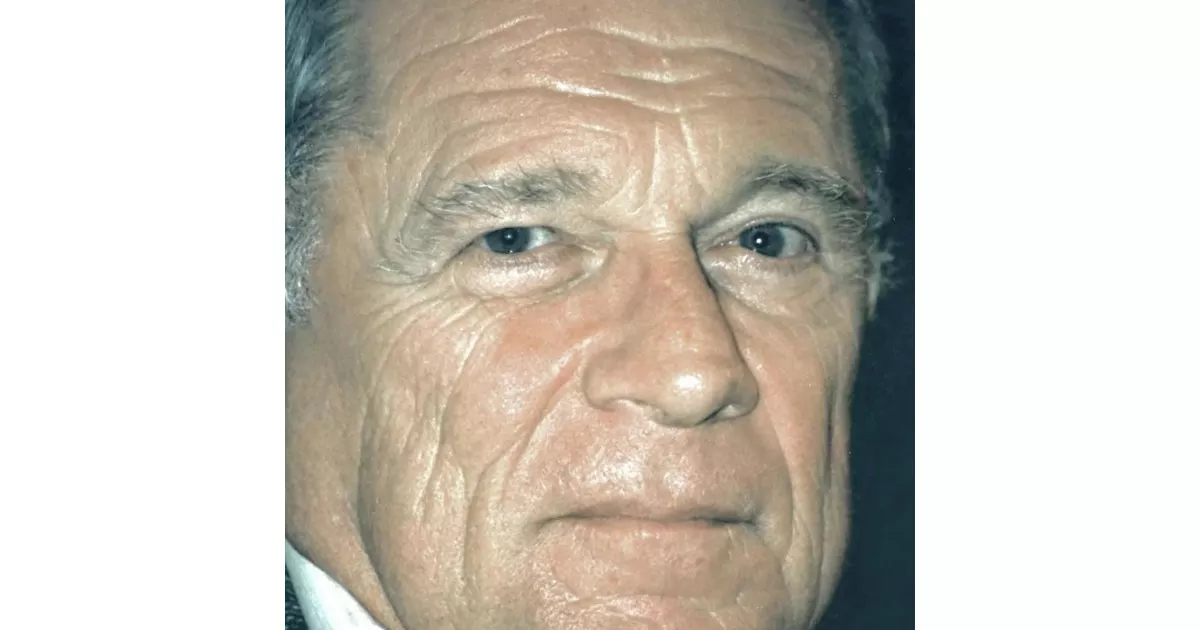F. Lee Bailey was a prominent American criminal defense attorney known for his involvement in several high-profile cases. He gained notoriety for successfully defending Sam Sheppard in his 1966 retrial for the murder of his wife. Bailey also played a key role in the defense team for Albert DeSalvo, the alleged Boston Strangler, and served as the lead attorney during the court-martial of Captain Ernest Medina related to the My Lai Massacre during the Vietnam War. He was also part of O.J. Simpson's defense team during his murder trial. Despite his successes, Bailey's legal career faced setbacks, including disbarment in Florida and Massachusetts due to misconduct related to client funds.
June 10, 1933: F. Lee Bailey's Birth
On June 10, 1933, Francis Lee Bailey Jr. was born in Waltham, Massachusetts.
1950: Graduation from Kimball Union Academy
In 1950, Bailey graduated from Kimball Union Academy.
1952: Dropped out of Harvard College to Join the Navy
In 1952, Bailey dropped out of Harvard College to join the United States Navy.
1954: Received Naval Aviator Wings
In 1954, Bailey received his naval aviator wings after flight training.
1954: Sam Sheppard's Initial Conviction
In 1954, Sam Sheppard was found guilty of murdering his wife Marilyn. This case was one of the inspirations for the television series, 'The Fugitive'.
1957: Admitted to Boston University School of Law
In 1957, Bailey was admitted to Boston University School of Law, which accepted his military experience in lieu of the usual undergraduate requirements.
1960: Graduated from Boston University School of Law
In 1960, Bailey graduated with an LL.B. from Boston University School of Law, ranked first in his class with the highest grade point average in the school's history.
1961: Divorce from Florence Gott
In 1961, F. Lee Bailey's first marriage to Florence Gott ended in divorce.
July 30, 1963: William Farber Murder
On July 30, 1963, retired Army Col. William Farber was murdered, leading to Carl A. Coppolino being accused of the crime.
1963: The Fugitive TV series Inspiration
In 1963, The Sam Sheppard murder case, which Bailey later took on, was one of the inspirations for the television series 'The Fugitive'.
1964: Bailey Defended Albert DeSalvo
In 1964, Bailey defended Albert DeSalvo for a series of sexual assaults known as the "Green Man" or "Measuring Man" incidents.
August 28, 1965: Carmela Coppolino Murder
On August 28, 1965, Carmela Coppolino, wife of Carl A. Coppolino, was murdered, leading to Carl being accused of the crime.
December 1966: Bailey Defended Coppolino in New Jersey
In December 1966, Bailey successfully defended Carl A. Coppolino in the New Jersey case over the death of William Farber.
1966: Bailey Won Sheppard a Retrial Before the U.S. Supreme Court
In 1966, Bailey successfully argued before the U.S. Supreme Court that Sam Sheppard had been denied due process, leading to a retrial.
1967: Host of Good Company
In 1967, Bailey became the host of the short-lived ABC television series 'Good Company', in which he interviewed celebrities in their homes.
1967: The Fugitive TV series End
In 1967, The TV series 'The Fugitive' ended, with Sam Sheppard's murder case being one of the inspirations for the series.
November 30, 1969: RKO Television Special Air Date
On November 30, 1969, Bailey was featured in an RKO television special in which he conducted a mock trial on the "Paul is dead" rumor referring to Beatle Paul McCartney in New York City.
1972: Divorce from Froma Portley and Marriage to Lynda Hart
In 1972, F. Lee Bailey divorced Froma Portley and married Lynda Hart.
1973: Indicted on Conspiracy and Mail Fraud Charges
In 1973, Bailey, along with Glenn W. Turner and eight others, was indicted by a federal grand jury on conspiracy and mail fraud charges related to Koscot Interplanetary and Dare to be Great.
1974: George Edgerly Convicted of Murder
In 1974, George Edgerly, whom Bailey had previously defended, was convicted of the murder of General Motors representative Frank Smith.
April 28, 1975: Crocker Bank Robbery in Carmichael
On April 28, 1975, members of the SLA robbed a Crocker Bank branch in Carmichael, California. Patty Hearst drove one of the getaway cars and a customer was killed.
1975: George Edgerly Convicted of Rape
In 1975, George Edgerly, whom Bailey had previously defended, was convicted of a rape.
1975: Turner Pleaded Guilty to Misdemeanor
In 1975, Glenn Turner pleaded guilty to a single misdemeanor charge of violating securities laws and was given probation, while charges against Bailey were dropped in the Koscot Interplanetary and Dare to be Great case.
1977: Patty Hearst's Sentence Commuted
In 1977, Patty Hearst's sentence was commuted by President Jimmy Carter after she had served 22 months of her seven-year sentence, following her conviction in a case where Bailey was her defense attorney.
1980: Divorce from Lynda Hart
In 1980, F. Lee Bailey divorced Lynda Hart.
February 28, 1982: Arrested for Drunk Driving
On February 28, 1982, Bailey was arrested for drunk driving in California, leading to a trial where he was acquitted.
1982: Bailey's Drunk Driving Case
In 1982, Bailey was the defendant in a drunk driving case, which was one of the longest running in California history. He was acquitted but faced legal defense bills of $100,000.
1983: Host of Lie Detector
In 1983, Bailey became the host of a short-lived syndicated television show called 'Lie Detector', where guests were questioned and submitted to a polygraph test.
1983: Korean Air Lines Flight 007 Case
In 1983, Bailey took on the case of aggrieved families of passengers on Korean Air Lines Flight 007, which was shot down over the Soviet Union, leading to criticism of his commitment to the case.
1985: Marriage to Patricia Shiers
In 1985, F. Lee Bailey married Patricia Shiers.
1994: Bailey Represented Claude DuBoc
In 1994, while the O. J. Simpson case was ongoing, Bailey and Robert Shapiro represented Claude DuBoc, who was found guilty of drug trafficking.
1996: Bailey Sent to Prison for Contempt
In 1996, Bailey was sent to prison for 44 days for contempt of court in the Claude DuBoc case, regarding the turnover of BioChem stock.
1996: Imprisonment for contempt of court
In 1996, F. Lee Bailey was imprisoned for six weeks for contempt of court. His brother raised money to enable Bailey to turn over stock to the government, leading to his release.
1998: McCorkles Convicted of Financial Fraud
In 1998, British citizen Chantal McCorkle and her American husband William were tried and convicted in Florida for her part in a financial fraud involving misrepresented infomercials.
1999: Death of Patricia Shiers
In 1999, F. Lee Bailey's fourth wife, Patricia Shiers, passed away.
2001: Disbarment in Florida
In 2001, Bailey was disbarred in Florida for misconduct while defending Claude Louis DuBoc.
2001: Patty Hearst Pardoned
In 2001, Patty Hearst, whom Bailey had defended, was pardoned by President Bill Clinton.
April 11, 2003: Reciprocal disbarment in Massachusetts
On April 11, 2003, F. Lee Bailey faced reciprocal disbarment in Massachusetts following his disbarment in Florida due to his handling of Biochem Pharma shares during the Claude DuBoc case.
2003: Disbarment in Massachusetts
In 2003, Bailey was disbarred in Massachusetts for misconduct while defending Claude Louis DuBoc.
2003: Ordered to pay taxes and penalties
In early 2003, a judge ordered F. Lee Bailey to pay $5 million in taxes and penalties related to income from the Duboc case, although the decision was later reversed.
March 2005: Failed attempt to regain law license
In March 2005, F. Lee Bailey filed to regain his law license in Massachusetts, but was unsuccessful.
2006: McCorkles' Sentences Reduced
In 2006, after two appeals, the McCorkles' sentences were reduced to 18 years from the original 24 years in federal prison.
2009: Move to Yarmouth, Maine
In 2009, F. Lee Bailey moved to Yarmouth, Maine, and became a partner in the Bailey & Elliott consulting business with Debbie Elliott.
2012: Maine Bar Examination
In 2012, F. Lee Bailey passed the Maine bar examination and applied for a law license, which was initially denied by the Maine Board of Bar Examiners.
March 2013: Hearing on law license application
In March 2013, a two-day hearing was held by Supreme Judicial Court Justice Donald G. Alexander to examine Bailey's suitability to practice law.
April 19, 2013: Ruling on law license application
On April 19, 2013, Supreme Judicial Court Justice Donald G. Alexander filed a 57-page ruling stating that Bailey was almost fit to practice law, except for an outstanding tax debt of nearly $2 million. Bailey was allowed to move for reconsideration of the decision if he offered a plan to repay the debt.
June 2013: Motion for reconsideration filed
In June 2013, Bailey's attorney, Peter DeTroy, filed a motion for reconsideration of the decision regarding Bailey's law license application. Justice Alexander granted the motion.
2013: Denied Law License in Maine and Subsequent Appeal
In 2013, The Maine Board of Bar Examiners denied Bailey a law license, a decision Bailey appealed that same year. The appellate court overturned the initial license denial.
2014: Maine Supreme Judicial Court Upheld License Denial
In 2014, The Maine Supreme Judicial Court upheld the original denial of Bailey's law license after the Board of Examiners appealed the appellate court decision.
2016: Operating consulting business in Maine
In 2016, F. Lee Bailey resided in Maine and operated the Bailey & Elliott consulting business.
2016: Portrayal in "The People v. O. J. Simpson: American Crime Story"
In 2016, F. Lee Bailey was portrayed by Nathan Lane in the miniseries "The People v. O. J. Simpson: American Crime Story".
2016: Featured in "O.J.: Made in America"
In Ezra Edelman's 2016 documentary "O.J.: Made in America", F. Lee Bailey is featured through interviews and archive footage of the Simpson murder trial.
2019: Move to Georgia
In approximately 2019, F. Lee Bailey, in his mid 80s, moved to Georgia to be near his son Scott.
June 3, 2021: F. Lee Bailey's Death
On June 3, 2021, F. Lee Bailey, the American criminal defense attorney, passed away.
2023: Portrayed in "Boston Strangler"
In 2023, F. Lee Bailey is portrayed by Luke Kirby in the film "Boston Strangler".
Mentioned in this timeline

Bill Clinton served as the nd U S President from...
California is a U S state on the Pacific Coast...

Jimmy Carter the th U S President - was a...

Sir Paul McCartney is an English singer songwriter and musician...
Florida a state in the Southeastern United States is largely...

Books are a means of storing information as text or...
Trending

5 minutes ago CDC Panel to Discuss COVID-19 Vaccine Injuries Following RFK Jr.'s Meeting

5 minutes ago Casey Means' Surgeon General Nomination Faces Scrutiny Over Mainstream Medicine Criticism and Birth Control Views.
1 hour ago Punch, the lonely baby monkey, goes viral and wins hearts worldwide.

2 hours ago Jon Hamm Discovers Viral Dancing Meme; Reacts to Meme-Worthy Status at 54.

2 hours ago Georgia: Missing child found safe after Amber Alert issued in Barrow County.

3 hours ago Selena Gomez Defends Benny Blanco Amid Dirty Feet Frenzy and Divorce Comments.
Popular

Jesse Jackson is an American civil rights activist politician and...

Barack Obama the th U S President - was the...

Susan Rice is an American diplomat and public official prominent...

XXXTentacion born Jahseh Dwayne Ricardo Onfroy was a controversial yet...

Michael Joseph Jackson the King of Pop was a highly...

Kashyap Pramod Patel is an American lawyer who became the...
